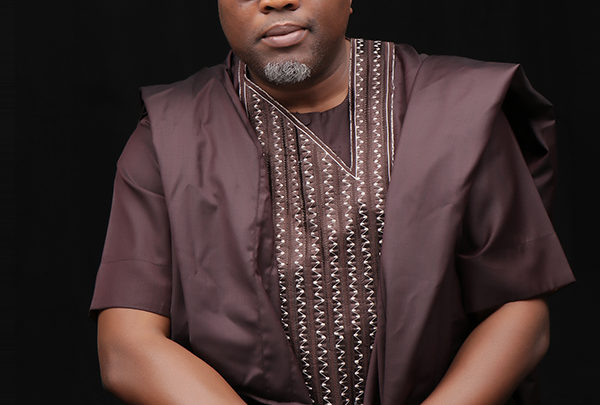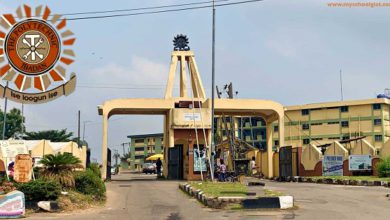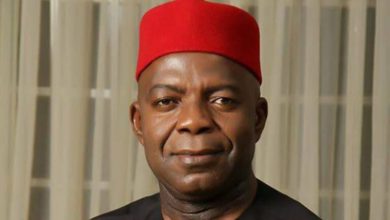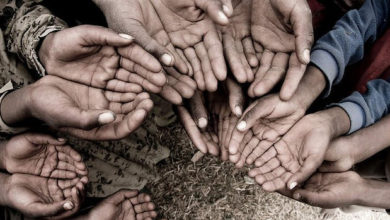
How is the middle class defined? These are two descriptions I found in two dictionaries:
A social class that occupies a position between the upper class and the lower class and is composed mainly of business and professional people, government officials, farmers, and skilled workers.
A social group that consists of well-educated people, such as doctors, lawyers, and teachers, who have good jobs and are not poor, but are not very rich.
But I think we need to reinterrogate these concepts. A member of the middle class in the USA is surely different from one here. Or are they the same? How do we set the bar? Is there any guidance from the bureaus for statistics around the world? Since we don’t manufacture a lot of things ourselves, there is a need to taper our expectations, in my opinion. And if we use a Purchasing Power Parity analysis, where according to my own research it is now looking like $1 in the United States of America may do the same work in Nigeria that they need $10 for there, and if a middle class person earns at least $15,000 monthly in the US, then to qualify as middle class here, a citizen needs to earn the equivalent of $1,500, or at the current rates, at least N2 million monthly.
Now, there are a good number of people who earn N2 million and above monthly in Nigeria. So, we may not validly say that the middle-class has disappeared in Nigeria. Those who earn that kind of sums include people in paid employment in many government parastatals, in oil and gas, banking, aviation, regulation, manufacturing, sundry industries, in businesses, and of late, self-employed – pastors and church administrators, a few leaders in other religions, in sports, entertainment of different types, making skits, ‘influencing’ (in any direction), pushing content on social media and getting paid by Google, X (Twitter) and Facebook and such like. Many young people are also earning far beyond that amount working remotely these days. On these ones, Nigeria has almost no data. They get paid remotely too – even some in some sort of bitcoin. Then Nigeria is replete with royalty – beyond what they could ever imagine in the US. We have many who are born into such royalties and dynasties, some of whom play administrative roles. Included in the middle class are also people who really have no jobs. They are middle class because there’s a benefactor somewhere who picks the bills. The last category to consider are those in not-so-legal businesses, like fraudsters (I hear that business is down these days), ladies and boys in the ‘hustling’ game as ‘oloshos’ and ‘fine boys’ and what have you. It’s shocking how much these ones make sometimes daily or in staggered fashion. And there are tens of thousands of middle-class people among our artisans. We have auto mechanics, fashion designers/tailors, plumbers, and so on, who make millions monthly. Many of us still look at them like they are unfortunate in life. Big mistake! I once assessed the business of some guy who roasts local chicken in Maitama, and this man does millions in turnover on a daily basis. That is perhaps a billion Naira business – when annualized.
DIFFERENCES BETWEEN MIDDLE CLASS HERE AND ABROAD
The problem is that the expectation of our middle-classers here takes direct cue from those who live abroad. If middle class people in the USA drive brand new cars, the ones in Nigeria also want to do the same for example. There is a problem here. We do not produce the cars. So, all of us suffer from that disease of low productivity at least in terms of the complexity of what we produce, not how long we work. When we blame our ‘leaders’ and ‘politicians’, about the state of the economy, we should also understand that we contribute, directly or indirectly – and generationally – to where the country finds herself. That’s the honest truth. We should check, whether we all find it easier to do the easier work than the backbreaking work that got many advanced countries to where they are today. Many of our youths today would rather take the route of ‘influencing’, or entertainment, than put in 15 years in some slow industry just to become a manager. Yet, it is in those kinds of industries that real growth and productivity that transforms nations come from.
I think we need to consider history in our analysis and quest for development. Where are we coming from? What have we collectively achieved in the past? These questions may help us taper our expectations. If we taper our expectations, perhaps we will be less angry, we will probably work harder, and take Nigeria as our personal responsibility. Uncoordinated, spontaneous anger achieves almost nothing positive. The state of mind necessary for development is a calm, deliberate, futuristic, positive, and sacrificial state of mind. Nothing less. The people who have progressed the countries we envy to the position they are today, did so with clear mind and strategic thinking process, not with spirits that are at odds with their country, or constantly itching to destroy. Look at the ENDSARS even of October 2020. Nigeria lost trillions and was probably slowed down as a result. SARS as a police unit disappeared. But the destruction in the wake of SARS is most damaging on all of us.
Back to our analysis of middle-class across countries. Perhaps I should tabulate:
| NIGERIA | USA | UK | |
| TRANSPORT | PERSONAL CARS (SOMETIMES UP TO 8 IN A HOUSE) | PERSONAL CARS (MAX 2 BECAUSE OF INSURANCE) | MOSTLY PUBLIC. CARS ON WEEKENDS (MAX 2 BECAUSE OF INSURANCE) |
| HOUSING | 3/4/5 BEDROOM HOUSE | SPACIOUS 3 BEDROOMS | NOT-SO-SPACIOUS 3 / 4 BEDROOMS |
| ELECTRICITY | CHAOTIC. RELIANCE ON GEN | NO ISSUES BUT EXPENSIVE | NO ISSUES BUT EXPENSIVE |
| PROSPECTS FOR LEADERSHIP | VERY HIGH | MODERATE | LOW |
| SECURITY | LOW | MEDIUM | HIGH |
| ENTERTAINMENT/CULTURE | VERY HIGH EXPECTATION/ CULTURE EXPECTS FREE SPENDING | MEDIUM | LOW – FAIRLY REGIMENTED |
| RELATIVE PRICES OF GOODS | LOW | HIGH | HIGH |
| EDUCATION FOR CHILDREN | FULLY-PRIVATE INCLUDING FOREIGN EDUCATION FOR CHILDREN | SEMI-PRIVATE | SEMI-PRIVATE |
| HOLIDAYS | MANY TIMES A YEAR | ONCE A YEAR | ONCE A YEAR |
| TASTE FOR FOOD/FASHION | ALMOST ENTIRELY FOREIGN | LOCAL | LOCAL |
| HOUSEHOLD STAFF | DRIVERS, MAIDS, GATEMANS, WASHMAN, CHILD-MINDERS, COOK | NONE (HUSBAND AND WIFE SPLIT CHORES INCLUDING CHILDCARE) | NONE (HUSBAND AND WIFE SPLIT CHORES – INCLUDING CHILDCARE) |
The above table tries to explain some expectations of the Nigerian middle-class person vis-à-vis the reality in the top countries in the world. I had a discussion with a lady recently who is pained about Nigeria’s current economic situation. I did sympathize and also promised her things would be turned around. But at some point, I figured what her problem was – children studying abroad. Now, she has to figure out where to find the money to purchase expensive dollars. The current reforms are an uppercut to such people. I never took such risk, luckily. I’m ensuring my children school here up to at least first degree. I would even prefer that they start work with their first degree – as I did in my time – and then sponsor themselves for further degrees when and if they need same with their own money. Honestly, all I really owe is the first degree. Overfeeding our children vicariously has become one of the banes of the middle class in Nigeria – whether with food, comfort, education or entertainment. It’s a form of illiteracy. Here was a lady who lives in a beautiful 6 bedroom mansion, with a lot of food to eat and much comfort, complaining about the economy! I tried to let her know that the fault may be hers. Let us be careful. The world is now a small sitting room. Everybody sees what everybody else is doing. I had attended two weddings in Lagos the day before. Lagos was as gay as usual with all the wedding parties in full flight. Millions get spent. People ‘spray’ dollars and naira like confetti, and dance on them. Intelligence services elsewhere are documenting our behaviors. And their people are watching us ‘waste’ and degrade money on social media. Don’t we think there’ll be repercussions?
From the table above, a lot could be inferred. I am also guilty. 4 cars in front of my house. Well, they are all tokunbos (fairly used from abroad when we bought them). I am very okay with them but some middle-class people in Nigeria will insist on new cars. I read an article recently, explaining that it costs $1,600 to maintain a car in Canada for just one month. That includes paying down the car note, insurance and fueling. That is at least N2 million in Nigerian currency! Just to drive a car. We don’t know what we have. Even for someone earning in Canadian dollar, that cost is prohibitive. I think there is a psychology we need to deal with – we always think we have arrived (individually and as a people) too early. My lady friend later said out of the blues that there was a time she traveled abroad several times in a year. Then it was reduced to once. Then today, all the money she has she has to change to dollars and send abroad for her schooling children – who may never ever come to Nigeria again (90% chance).
JAPA AND MANY ILLUSIONS
I looked at a list of the countries with the largest numbers of international students in the USA recently. It was China (289,526 students), India (268,923 students), South Korea (43,847 students) Canada (27,876 students), Vietnam (21,900 students), Taiwan (21,834 students), Nigeria (17,640 students), Japan (16,054 students), What is Nigeria (a developing, mono-product, crop-exporting country) doing on that list? And most of them will never return to Nigeria. To that extent, the investment must be reassessed. I look at the UK, Nigeria is third after China with 151,690 students, and India with 126,535 students. We had 44,195 as at 2023. Imagine! A country of 200 million has almost 50,000 students in the expensive educational system of the UK. Another very prosperous country of 1.4 billion (7 times the population), has just thrice the number. We are rather too flippant. And the numbers keep increasing daily, putting our meagre forex under immense pressure. We are encouraging our children to bail out on their country never to return. This Naira devaluation helps to curb this. But whereas I believe that we need to strengthen the naira to some extent, I don’t believe we should encourage this japa tendency in the meantime. We now have so many job openings here. Nigeria remains a land of opportunities. We need to back up the reversal with admonitions to all. Rather than send your children to foreign schools, consider private universities here. And let them do their nursery, primary and secondary schools here.
TAYO’S DAY WATERMAN AND HERBERT’S WIGWE
Some of Nigeria’s top bankers have invested recently in the educational sector. First was Late Tayo Aderinokun (co-founder GT Bank) with the Day Waterman College somewhere in Ogun State. The school is one of the most expensive in Nigeria. I hope they teach the children there some patriotism and let them see the advantages they all sit upon as Nigerians. I know that many elite schools would rather gorge their students with the virtues of Britain and America but I trust Day Waterman is smarter. I recall the argument between Obafemi Awolowo and Tai Solarin in 1947 about the virtues of elite schools like Kings College. Tai was opposed to Kings College because he thought many of the students will develop a condescending attitude towards a rural country like Nigeria and emigrate abroad. He was very right. But Awo won the debate.
Another investor in education that I know of is Zenith Bank’s Jim Ovia with James Hope University which I believe grew from a secondary school somewhere in Delta State. But the more poignant example is that of Late Herbert Wigwe. He insisted that he wanted to build the Harvard of Africa in terms of quality. He wanted to charge fees at that level too. I started to wonder why. I then saw that perhaps these multi-billionaires are seeing the futility of losing their children to funny ideas in expensive foreign schools. Imagine spending so many dollars to groom a child that cannot continue your lofty legacies? So, the wannabes among the middle class should consider these expensive local schools where they can pay Naira, rather than continue to put the country – and themselves under immense forex pressure.
FOOD INFLATION – CAN WE TURN NIGERIA INTO A HUGE GARDEN
Now, Nigeria is said to have a population of more than 200 million people. This is the largest in Africa. Our people are complaining bitterly today because of inflation at 29.9% and food inflation at above 35%. I think we should have planned towards this as a people, collectively. With this huge population, no other country can back us up with food. In fact, we are feeding many of them. With Nigeria’s currency now so cheap, our petrol has started escaping massively again to these countries. And also our food. Nigeriens, Chadians and Cameroonians cannot believe their luck. Big brother Nigeria has become so cheap. And so, the other day, I was driving past the National Stadium in Abuja. As usual, the place was overgrown with weed. But when occurred to me was that we could have planted tree crops all over the place, rather than mere ornamental trees. When did we imbibe the foreign idea of planting ornamental trees or trees for fashion? In the olden days, our fathers planted with purpose. Almost all the trees left standing in their compounds bore fruits in season. But today, same middle-class people, living in a country with huge population, don’t believe that is necessary.
Therefore, one of the things we must do – as they did after the war in Vietnam – is to consider the idea of urban farming. If we are afraid of going to far distances to farm, let us defy those criminals trying to destroy our country, by planting in every space around us – in small gardens, in flowerpots and what have you. This must be a national campaign. No time to waste time. Funny enough, as I ruminated this idea, I got a call from a lady that has worked on a solution. She is selling a pack of seeds – tomatoes, peppers etc – with fertilizers and instruction on how to plant them, to each household. I think it is a fantastic idea. We would worry less about every crop and inflation if we were planting at least a portion of what we eat.
OUR POOREST – THE KEY CONCERN
As for me, the key concern is our poorest citizens. Honestly, I think the middle-class and the higher class in our society have to make some adjustments. We also have to be more appreciative of our advantages vis-à-vis other countries. Imagine the number of household workers we often have? My friends abroad say it costs the full salary of one of the spouses to be able to afford a childminder. So, only one person works. This can cause a lot of strain on one person, or even on the relationship. This discourages even having children. Nigerians are not so good with counting our blessings but we must now start.
Our poorest people should be our major concern today. Whatever naira savings we are making from devaluing the currency, or removing fuel subsidy, must head straight to our poorest, to assuage their financial situation in very profound ways. Governors and local government chairmen – where they exist – must urgently help the efforts of Mr President. And the people want fewer committees and more action. But even our poorest need education about how the world works. We are all being panel-beaten into the ways of the world. Your brothers and sisters abroad will have regaled you about the kinds of crazy bills they pay monthly – several insurance bills, water, light, council tax, tv license, credit card charges, house rent or mortgage, monthly payment for their cars, household appliances and even clothes. It does their heads in and so we cannot take it for granted that they are making money and should constantly send money home. We need a real change in mentality among our poorest. Especially among the young, I urge them to take on a more positive attitude about Nigeria. Many of them lose opportunities right under their noses because the negative attitude now oozes from them like perfumes, and nobody will want to give opportunity to someone who has lost hope in self-improvement even before they start. Our youths should also be careful about drugs – which are now more cheaply available in a liberalized world. It does not help with a good life.
As for the economy, I can assure us all that under the guidance of President Tinubu, VP Shettima, the gurus running that critical sector like Mr Wale Edun and Mr Cardoso, we shall pull through this moment in glory. The worst is actually over. Inflation is expected to start trending down shortly. Our naira surfeit will be deployed into infrastructure, and into paying our people better salaries. Opportunities will continue to expand all over the economy. Jobs will be everywhere. Nigeria will become a huge construction site. A few people will decide to stay back and study at home. And many who have escaped will see into the future and come back home. There is a reason we were created and born into this patch of earth. We must find that reason. And the time is now.



